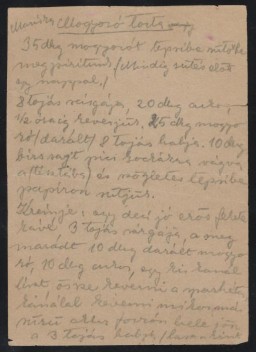You searched for: ghettos
<< Previous | Displaying results 981-990 of 1239 for "ghettos" | Next >>
-
Curt Egon Rosenberg
ID CardCurt was the oldest of three children born to a Jewish family in the famous German university city of Goettingen. His father owned a linen factory that had been in the family since it was founded by Curt's grandfather. Goettingen had a small Jewish population, with only one synagogue. Curt attended public school in the city. 1933-39: The Nazis came to power in 1933. A year later, the Rosenbergs' factory was seized and the family was forced to move to Hamburg. Because he was Jewish, Curt was arrested in…
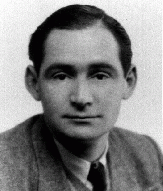
-
Eva Heyman
ID CardThe only child of a cosmopolitan Hungarian Jewish couple, Eva grew up in a city on the border between Romania and Hungary. Nearly one-fifth of the city's population was Jewish. Eva was a small child when her parents, Agi and Bela, divorced, and she went to live with her grandparents. 1933-39: After the divorce, Eva saw little of her mother, who remarried and moved to Budapest. She also rarely saw her father, who lived on the other side of the city. Eva lived with her grandmother and grandfather near the…
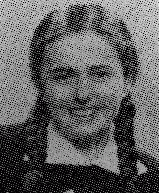
-
Alice Krakauerova Seelenfriedova
ID CardAlice was the third of six children born to Jewish parents in the small Moravian town of Hodonin, where her father ran a dry goods and clothing store. The family spoke both Czech and German at home, and Alice attended a German-language secondary school. After graduating, she married her teenage sweetheart, Otto Seelenfried, who was a chemical engineer. 1933-39: Alice and Otto moved to the town of Jihlava. In 1934 Otto died from a ruptured appendix, and Alice returned to live with her parents in Hodonin.…
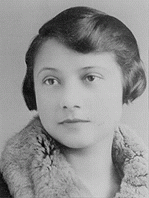
-
Max Krakauer
ID CardMax was the oldest of six children born to Jewish parents in the small Moravian town of Hodonin, where his father ran a dry-goods and clothing store. His family spoke both Czech and German at home, and Max attended German-language schools in Hodonin and Lipnik. He completed his education in 1920. Born with a heart condition, Max lived a sheltered life. 1933-39: Max's father, Bernard, was getting on in years and wanted to retire. Max was not strong enough to take over the business, so the Krakauers sold…
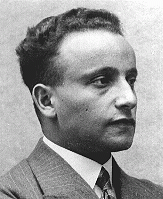
-
Alfred (Fredl) Krakauer
ID CardAlfred was the fifth of six children born to Jewish parents in a small town in Moravia, where his father ran a dry-goods and clothing store. The Krakauers spoke both Czech and German at home. In 1929 and 1930, after graduating from secondary school, Alfred served in the Czechoslovakian army. He enjoyed skiing and also played soccer for the Maccabi Jewish team. 1933-39: Alfred graduated in 1934 from Prague's Industrial School for Art. He became a graphic artist and decided to remain in Prague because of…
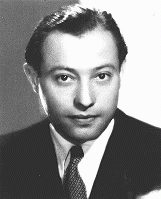
-
Josef Deutsch
ID CardJosef was born to Yiddish-speaking, religious Jewish parents in the town of Viseu de Sus in Transylvania, a region of Romania that belonged to Hungary until 1918. In 1890 he married Emma Geisler from the nearby town of Bistrita. The couple had four children and after 1910 the family lived at #4 Hid Street in Viseu de Sus. Josef was a merchant who owned a stall in Viseu de Sus's public market. 1933-39: By 1939 two of Josef's grown sons had moved to the Hungarian capital of Budapest. Josef and his wife…
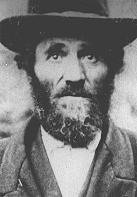
-
Chava Lea Deutsch
ID CardChava Lea was born Emma Geisler to Yiddish-speaking, religious Jewish parents. The Deutsch family lived in the village of Budacu de Sus in Transylvania, a region of Romania that belonged to Hungary until 1918. She grew up in the town of Bistrita. In 1890 she married Josef Deutsch, a salesman from the town of Viseu de Sus, where the couple moved in 1910. Chava and Josef raised four children. 1933-39: By 1939 two of Chava Lea's grown sons had moved to the Hungarian capital of Budapest. Chava Lea and her…
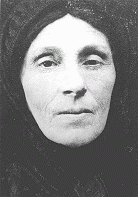
-
Laszlo Schwed
ID CardLaszlo was raised by Hungarian-speaking Jewish parents in the town of Kiskunfelegyhaza in southeastern Hungary. He opened a business selling goose meat, feathers, down and quilts. In 1931 he married Anna Mahrer, from Budapest, and they had a daughter in January 1932. 1933-39: Laszlo and Anna had a second child, a son. They raised their two children in a comfortable home. Kiskunfelegyhaza was located in a rural part of Hungary. In May 1939, the Hungarian government enacted a law that defined Jews as alien…
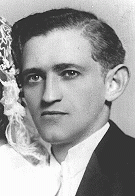
-
Mrs. Zinger's recipe for mocha cake
DocumentIlona Kellner and her family lived in Pelsöc, which became part of Hungary before World War II. Following the German occupation of Hungary, Ilona, her sister Vera, and her parents Karoly and Jolan were forced into a ghetto in another area of the town. In mid-June, the family was deported to the Auschwitz camp in German-occupied Poland. Ilona's parents were killed in the gas chambers at Birkenau. In early August, Ilona and her sister were deported to Hessisch Lichtenau, a subcamp of the Buchenwald…
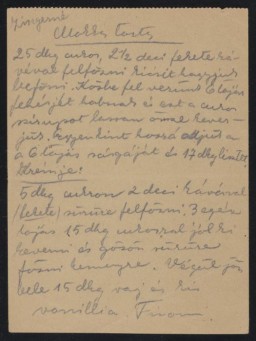
-
Mariska's recipe for hazelnut cake
DocumentIlona Kellner and her family lived in Pelsöc, which became part of Hungary before World War II. Following the German occupation of Hungary, Ilona, her sister Vera, and her parents Karoly and Jolan were forced into a ghetto in another area of the town. In mid-June, the family was deported to the Auschwitz camp in German-occupied Poland. Ilona's parents were killed in the gas chambers at Birkenau. In early August, Ilona and her sister were deported to Hessisch Lichtenau, a subcamp of the Buchenwald…
